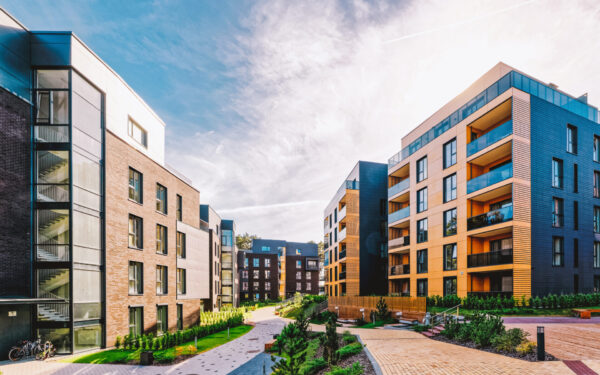“The only constant in life is change” ~ Heraclitus (ca. 500 BC).
A spring rainfall is a good reminder that things change, and nothing is ultimately entirely predictable. This is true of life generally, and true of everything we are engaged in specifically, including the work of condominium boards. Therefore, one aspect of being the best board is being flexible, adaptable, and resilient.
The illusion of predictability
A lot of what condominium boards are called upon to do rests on the illusions of constancy and predictability:
- Reserve Fund studies and plans seek to predict the timing and cost of major repairs and replacements of the common elements and assets up to 30 years into the future. Money is set aside based on those predictions.
- Budgets are made annually, projecting the year’s coming costs and collecting contributions from each of the owners in advance with the intention of adequately covering them.
- Conditions, restrictions and other provisions are written into condominium declarations, by-laws and rules to help define, for all time purportedly, the preferred character and conduct of the community.
Yet anyone who has served on a condominium board of directors for even a short time knows that each of these things is subject to significant change. A year doesn’t pass by without our firm having made new provisions for some condominium’s declaration or rules, revised its agreements, and advised about variations to the repair and replacement schedules set out in its Reserve Fund plans.
New circumstances require new decisions
In addition, owners sell their units, occupants move, people’s financial circumstances change, utility costs may increase, weather events and other things can drastically impact the condition and care needs of the property, new technology (like electric vehicle charging systems) can present new opportunities and new challenges, and so on.
Section 37 of Ontario’s Condominium Act, 1998 sets out the following standards of care for condominium directors:
37 (1) Every director and every officer of a corporation in exercising the powers and discharging the duties of office shall,
(a) act honestly and in good faith; and
(b) exercise the care, diligence and skill that a reasonably prudent person would exercise in comparable circumstances.
Can we be said to be acting in good faith and honesty in the fullest sense, or even applying reasonable care, if we willfully, or stubbornly, subscribe to the false idea that nothing should ever change, that condominium rules are not open to review and reconsideration, that budgets and Reserve Fund plans are not just that – plans – and that we might have to change them to suit the new circumstances of any given day, or that the kinds of decorations and designs that people at one time want for their units and the common elements might not become out of date, unattractive or inconvenient at another?
One difference between a commonplace condominium board and a good one is that the latter possesses an openness to change – not an insistence on it, but the ability to withstand and adapt to it when appropriate – which in turn invites greater communication and consideration both on the board and in its community generally.
Key takeaways
- Condominium governance is built on forward-looking tools, like budgets, reserve fund studies, and rules, but these tools are not infallible and must adapt to reality.
- Change is constant in condo communities: residents change, costs fluctuate, legal frameworks evolve, and new technologies emerge.
- Directors have a legal obligation to act with care, diligence, and good faith, which includes being open to reasonable change when circumstances demand it.
- Effective boards balance continuity with flexibility, understanding that plans and rules may need to be updated for the community’s best interest.
- Openness to change fosters stronger communication, collaboration, and trust between directors and unit owners.
Change may be inevitable, but good governance is intentional. For board members, this means going beyond rigid rule-following to embrace a mindset of responsiveness and practical wisdom.
If your condominium corporation is facing new challenges – whether financial, environmental, technological, or social – consider whether your governing documents, plans, or policies are still serving your community’s needs.
This article was authored by a former Associate Counsel with Miller Thomson. Please reach out to a member of our Condominium & Strata Group if you have questions about how to navigate change responsibly.




